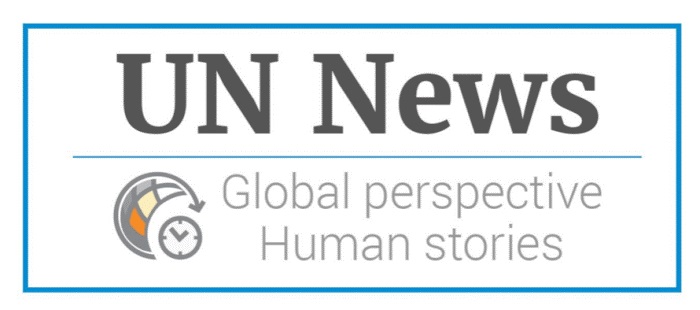Guterres calls for accelerated action on jobs, poverty eradication
Almost two years into the COVID-19 crisis, a huge divergence in the recovery is undermining global trust and solidarity, according to a new policy brief on jobs and poverty eradication, outlined by UN chief, António Guterres on Tuesday.

The Secretary-General warned that the pandemic has not only confirmed but deepened existing inequalities.
Investment in jobs, social protection and a just transition to a net-zero emissions future, particularly in low and middle-income countries, could prevent a further deepening of the inequalities.
"Global solidarity so far has been completely inadequate," Mr Guterres said. "A renewed social contract...should be central to the recovery".
Deeply diverging recoveries
According to the policy brief, extreme poverty increased by between 119 and 224 million people between March and December 2020 - the first such increase in over 21 years.
More than three-quarters of these 'new poor' are in middle-income countries. At the same time, the wealth of billionaires increased by over $ 3.9 trillion.
The report noted that because of the pandemic, there are an estimated 75 million fewer jobs in 2021 than there were before the crisis, and 23 million fewer projected in 2022.
It also estimates that 8.8 percent of total working hours were lost in 2020 - equivalent to the hours worked in one year by 255 million full-time workers.
This corresponds to a loss of $3.3 trillion in labour income before government support.
To achieve "a job-rich recovery" and a "just transition," at least $982 billion is needed to respond to the immediate labour market shocks of the crisis, the report said.
Achieving universal social protection
The Secretary-General called for universal social protection by 2030, including universal health care, income protection, education and skills training, particularly for women and girls.
The many ad-hoc and temporary measures that have been implemented over the past year "provide a starting point" Mr. Guterres noted.
To achieve this we must mobilize significant public and private investments – some $1.2 trillion to achieve universal social protection coverage for low and middle-income countries, he said.
Investments must also be ramped up to help achieve the Sustainable Development Goals (SDGs) and address the risks from climate change that could jeopardize 1.2 billion jobs, equivalent to 40 percent of the global labour force.
Accelerating job creation
During the presentation, Mr. Guterres announced the creation of a new Global Accelerator on Jobs and Social Protection for a Just Transition, in collaboration with the International Labour Organization (ILO).
The aim of the Accelerator is to create at least 400 million jobs by 2030, primarily in the green and care economies, and extend social protection floors by 2025 to 50 percent of people currently not covered, he said.
The Policy Brief recommended several measures to achieve this:
- Integrated national and inclusive recovery strategies, expanded investment in Social Protection.
- Policy measures to extend social protection to workers in the informal economy, and to formalize employment in the care economy.
- Policies should be introduced to help workers upskill and re-skill.
- Sound financial architecture must be developed to mobilize investments.
- Collaboration with the private sector should be made to scale up investments in strategic sectors and strategies must be aligned with the Paris Climate Agreement.
Mobilizing action
The upcoming meetings of international financial institutions, the G20, and COP26 will be "a pivotal moment to put the world on a sustainable, resilient, and inclusive path," Mr. Guterres said. "Global cooperation is indispensable to building resilience to future shocks, through economies that work for everyone."
Visit UN News for more.
ALSO READ
"Middle East on brink": UN Secretary-General Guterres calls for de-escalation in region
Guterres condemns Iran’s attack on Israel, calls for immediate end to latest hostilities
Guterres condemns Iran’s attack on Israel, calls for immediate end to hostilities
‘Concerted global push’ for Sudan ceasefire is essential: Guterres
"Middle East on brink": UN Secretary-General Guterres calls for de-escalation in region










